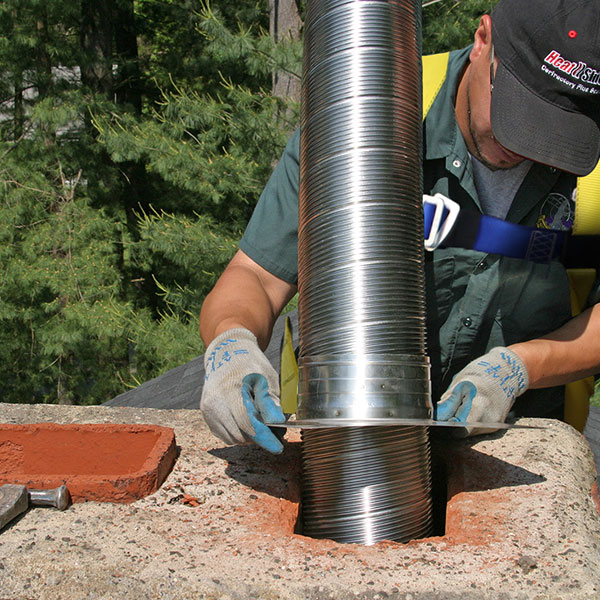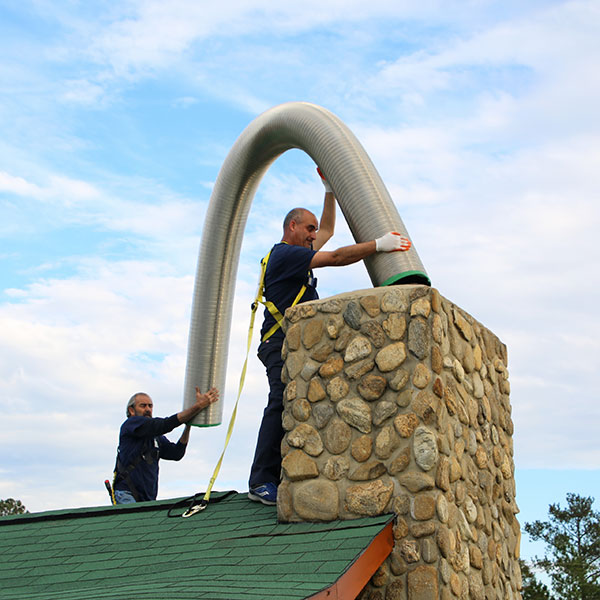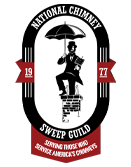How to Seal A Flue Pipe To A Chimney
Does your fireplace feel drafty? When the outdoor air mixes with indoor air through the chimney flue, it can do more than raise your energy bills. Air leaks are common, especially with older homes in the Central Savannah River Valley Area (CSRA) and South Carolina Midlands region. The problem, however, is that these air leaks are often the result of worn sealing around the flue pipe.
When the silicone caulk sealant disappears through normal wear and tear or cracks in the liner, harmful contaminants, including toxic carbon monoxide gas, can leak inside your living space. Since sealing a flue pipe or liner to a chimney requires compliance with National Fire Protection Association (NFPA) Codes and Standards, Environmental Protection Agency (EPA) regulations, and local building and fire safety codes, it is a task that should only be done by a certified professional like Advanced Chimney. Here’s how to seal a flue pipe to a masonry or manufactured chimney.
What is a Flue Pipe
The flue pipe is the metal duct inside a chimney that provides a passageway for the safe and efficient expelling of smoke and exhaust from your heating appliance outside your home through the top of the stack.
Maintaining a clean flue pipe is essential for safely and efficiently operating your fireplace, stove, or other attached heating appliance.
Complying With Building Codes & Safety Regulations
Like many other jurisdictions around the world, the U.S. Environmental Protection Agency (EPA) has adopted the NFPA and ICC standards and codes. These codes regulate how you must seal a flue pipe to a chimney. This is the standard that our certified chimney professionals follow. It states that there shall be:
- One-inch clearance between the pipe and a manufactured metal flue.
- Two-inch clearance between the flue pipe and a masonry chimney.
The minimum clearance ensures sufficient air space to help prevent overheating that could cause a fire. The code also requires sealing a flue pipe to a metal or masonry chimney with aluminum flashing and high-temperature silicone caulk. High-temperature caulk is specifically formulated for extreme heat applications like protecting the chimney and flue from moisture intrusion.
Preparing to Seal the Flue Pipe to a Chimney
After cleaning the flue, inspecting and repairing any damage, and purchasing a flue kit, the next step is to prep the chimney. You do this by carefully rolling the metal sheets to be inserted into the chimney. It’s easier if you spread them out first before rolling. Then use one screw on each side to hold them in place.
Inserting the Metal Liner
The string inside the flue kit will help guide you when inserting the flue into the chimney. It helps if you have a buddy to help pull the line down from the fireplace opening. Then attach to flue liner to the cap.
How to Seal the Flue
Finally, it’s time to seal the flue pipe to the chimney.
- First, ensure the stove pipe is in line with the flue pipe in the chimney. Then, slide the stove pipe over the end of the chimney pipe with the crimp and press it firmly in place. The latter will make the next step easier.
- Next, have your portable drill handy. You will need to slowly drive a self-tapping sheet metal screw into the stove pipe about a half-inch above where the stovepipe and chimney pipe overlap. When the screw is tight, the lines are secure.
- Then, drive two more screws on two other sides of the pipes that are equal distances from each other. Ensure to firmly tighten each screw but be careful not to overtighten them, or you could strip the screws and damage both pipes.
 Chimney & Flue Pipe Sealing & Repair
Chimney & Flue Pipe Sealing & Repair
As you can tell, sealing a flue pipe to a chimney must be done in such a manner as to avoid injuries or damage. Advanced Chimney Sweep provides professional chimney cleaning, repairs, and installations in the Central Savannah River Area (CSRA) and South Carolina Midlands region, including Swainsboro, GA; Richmond Hill, GA; Florence, SC; and Rock Hill, SC.
Please call (803) 508-3990 or (706) 833-4630 today to schedule a visit or contact us online to speak with a Certified Chimney Professional®.






